- Home
- William Shakespeare
As You Like It (Folger Shakespeare Library) Page 4
As You Like It (Folger Shakespeare Library) Read online
Page 4
you saw yourself with your eyes or knew yourself with your
judgement, the fear of your adventure153 would counsel you to
a more equal154 enterprise. We pray you for your own sake to
embrace your own safety and give over this attempt.
ROSALIND Do, young sir: your reputation shall not therefore be
misprized. We will make it our suit157 to the duke that the
wrestling might not go forward.
ORLANDO I beseech you, punish me not with your hard
thoughts, wherein I confess me much guilty, to deny so fair
and excellent ladies anything. But let your fair eyes and
gentle wishes go with me to my trial; wherein if I be foiled162,
there is but one shamed that was never gracious163, if killed,
but one dead that is willing to be so. I shall do my friends164 no
wrong, for I have none to lament me, the world no injury, for
in it I have nothing. Only in the world I fill up a place, which
may be better supplied when I have made it empty.
ROSALIND The little strength that I have, I would it were with
you.
CELIA And mine, to eke out170 hers.
ROSALIND Fare you well: pray heaven I be deceived171 in you!
CELIA Your heart's desires be with you!
CHARLES Come, where is this young gallant that is so desirous
to lie with his mother earth174?
ORLANDO Ready, sir, but his will175 hath in it a more modest
working176.
DUKE FREDERICK You shall try but one fall177.
CHARLES No, I warrant178 your grace you shall not entreat him
to a second, that have so mightily persuaded him from a first.
ORLANDO You mean to mock me after, you should not have
mocked me before. But come your ways181.
ROSALIND Now Hercules be thy speed182, young man!
CELIA I would I were invisible, to catch the strong fellow by
the leg.
Wrestle
ROSALIND O excellent young man!
Charles is thrown
CELIA If I had a thunderbolt in mine eye,
I can tell who should down187.
Shout
DUKE FREDERICK No more, no more.
ORLANDO Yes, I beseech your grace:
I am not yet well breathed190.
DUKE FREDERICK How dost thou, Charles?
LE BEAU He cannot speak, my lord.
Charles is carried out/To Orlando
DUKE FREDERICK Bear him away.--What is thy name,
young man?
ORLANDO Orlando, my liege, the youngest son of Sir Rowland
de Bois.
DUKE FREDERICK I would thou hadst been son to some man else:
The world esteemed thy father honourable,
But I did find him still199 mine enemy.
Thou shouldst have better pleased me with this deed
Hadst thou descended from another house.
But fare thee well, thou art a gallant youth.
I would thou hadst told me of another father.
Exit Duke [with others; Celia, Orlando and Rosalind remain]
To Rosalind
CELIA Were I my father, coz, would I do this?
Aside?
ORLANDO I am more proud to be Sir Rowland's son,
His youngest son, and would not change that calling206
To be adopted heir to Frederick.
To Celia
ROSALIND My father loved Sir Rowland as his soul,
And all the world was of my father's mind:
Had I before known this young man his son,
I should have given him tears unto211 entreaties,
Ere212 he should thus have ventured.
To Rosalind
CELIA Gentle cousin,
Let us go thank him and encourage him.
My father's rough and envious215 disposition
To Orlando
Sticks216 me at heart.-- Sir, you have well deserved,
If you do keep your promises in love
But justly, as you have exceeded all promise218,
Your mistress219 shall be happy.
Gives him a chain from her neck
ROSALIND Gentleman,
Wear this for me, one out of suits221 with fortune,
That could give more, but that her hand lacks means.
To Celia
Shall we go, coz?
CELIA Ay.-- Fare you well, fair gentleman.
ORLANDO Can I not say, I thank you? My better parts225
Are all thrown down, and that which here stands up
Is but a quintain227, a mere lifeless block.
ROSALIND He calls us back. My pride fell with my fortunes.
To Orlando
I'll ask him what he would229.-- Did you call, sir?
Sir, you have wrestled well and overthrown
More than your enemies.
CELIA Will you go, coz?
ROSALIND Have with you233. Fare you well.
Exeunt [Rosalind and Celia]
ORLANDO What passion hangs these weights upon my tongue?
I cannot speak to her, yet she urged conference235.
Enter Le Beau
O poor Orlando, thou art overthrown!
Or237 Charles or something weaker masters thee.
LE BEAU Good sir, I do in friendship counsel you
To leave this place. Albeit you have deserved
High commendation, true applause and love,
Yet such is now the duke's condition241
That he misconstrues all that you have done.
The duke is humorous: what he is indeed243
More suits you to conceive244 than I to speak of.
ORLANDO I thank you, sir; and pray you tell me this:
Which of the two was daughter of the duke
That here was at the wrestling?
LE BEAU Neither his daughter, if we judge by manners,
But yet indeed the taller249 is his daughter,
The other is daughter to the banished duke,
And here detained by her usurping uncle
To keep his daughter company, whose loves
Are dearer than the natural bond of sisters.
But I can tell you that of late this duke
Hath ta'en displeasure 'gainst his gentle255 niece,
Grounded upon no other argument256
But that the people praise her for her virtues
And pity her for her good father's sake;
And, on my life, his malice 'gainst the lady
Will suddenly260 break forth. Sir, fare you well.
Hereafter, in a better world than this,
I shall desire more love and knowledge262 of you.
ORLANDO I rest much bounden263 to you. Fare you well.
[Exit Le Beau]
Thus must I from the smoke into the smother264,
From tyrant duke unto a tyrant brother.
But heavenly Rosalind!
Exit
Act 1 Scene 3
running scene 2 continues
Enter Celia and Rosalind
CELIA Why, cousin? Why, Rosalind? Cupid1 have mercy, not
a word?
ROSALIND Not one to throw at a dog.
CELIA No, thy words are too precious to be cast away upon
curs5, throw some of them at me; come, lame me with
reasons6.
ROSALIND Then there were7 two cousins laid up, when the one
should be lamed with reasons and the other mad without
any.
CELIA But is all this for your father?
ROSALIND No, some of it is for my child's father11. O, how full of
briars is this working-day12 world!
CELIA They are but burs13, cousin, thrown upon thee in
holiday foolery: if we walk not in the trodden paths our very
petticoats15 will catch them
.
ROSALIND I could shake them off my coat16: these burs are in my
heart.
CELIA Hem18 them away.
ROSALIND I would try, if I could cry 'hem' and have19 him.
CELIA Come, come, wrestle20 with thy affections.
ROSALIND O, they take the part of21 a better wrestler than myself!
CELIA O, a good wish upon you! You will try22 in time, in
despite of a fall. But turning these jests out of service23, let us
talk in good earnest: is it possible, on such a sudden, you
should fall into so strong a liking with old Sir Rowland's
youngest son?
ROSALIND The duke my father loved his father dearly.
CELIA Doth it therefore ensue that you should love his son
dearly? By this kind of chase29, I should hate him, for my
father hated his father dearly; yet I hate not Orlando.
ROSALIND No, faith, hate him not, for my sake.
CELIA Why should I not?32 Doth he not deserve well?
Enter Duke with Lords
ROSALIND Let me love him for that, and do you love him
because I do. Look, here comes the duke.
CELIA With his eyes full of anger.
To Rosalind
DUKE FREDERICK Mistress, dispatch you with your safest haste36
And get you from our court.
ROSALIND Me, uncle?
DUKE FREDERICK You, cousin
Within these ten days if that thou be'st found
So near our public court as twenty miles,
Thou diest for it.
ROSALIND I do beseech your grace,
Let me the knowledge of my fault bear with me:
If with myself I hold intelligence45
Or have acquaintance with mine own desires,
If that I do not dream or be not frantic47 --
As I do trust I am not -- then, dear48 uncle,
Never so much as in a thought unborn
Did I offend your highness.
DUKE FREDERICK Thus do all traitors.
If their purgation52 did consist in words,
They are as innocent as grace53 itself;
Let it suffice thee that I trust thee not.
ROSALIND Yet your mistrust cannot make me a traitor;
Tell me whereon56 the likelihood depends.
DUKE FREDERICK Thou art thy father's daughter, there's enough.
ROSALIND So was I when your highness took his dukedom,
So was I when your highness banished him;
Treason is not inherited, my lord,
Or if we did derive it from our friends61,
What's that to me? My father was no traitor.
Then, good my liege, mistake me not so much
To think my poverty is treacherous.
CELIA Dear sovereign, hear me speak.
DUKE FREDERICK Ay, Celia, we stayed66 her for your sake,
Else had she with her father ranged67 along.
CELIA I did not then entreat to have her stay,
It was your pleasure and your own remorse69.
I was too young70 that time to value her,
But now I know her: if she be a traitor,
Why so am I. We still72 have slept together,
Rose at an instant, learned, played, eat73 together,
And wheresoe'er we went, like Juno's swans74,
Still we went coupled and inseparable.
DUKE FREDERICK She is too subtle for thee, and her smoothness76,
Her very silence and her patience
Speak to the people, and they pity her.
Thou art a fool: she robs thee of thy name79,
And thou wilt show more bright and seem more virtuous
When she is gone. Then open not thy lips.
Firm and irrevocable is my doom82
Which I have passed upon her: she is banished.
CELIA Pronounce that sentence then on me, my liege:
I cannot live out of her company.
DUKE FREDERICK You are a fool. You, niece, provide86 yourself:
If you outstay the time, upon mine honour,
And in the greatness88 of my word, you die.
Exeunt Duke and others
CELIA O my poor Rosalind, whither wilt thou go?
Wilt thou change90 fathers? I will give thee mine.
I charge thee be not thou more grieved than I am.
ROSALIND I have more cause.
CELIA Thou hast not, cousin.
Prithee be cheerful; know'st thou not the duke
Hath banished me, his daughter?
ROSALIND That he hath not.
CELIA No, hath not? Rosalind lacks then the love
Which teacheth thee that thou and I am one.
Shall we be sundered99? Shall we part, sweet girl?
No, let my father seek another heir:
Therefore devise with me how we may fly,
Whither to go and what to bear with us.
And do not seek to take your change103 upon you,
To bear your griefs yourself and leave me out,
For, by this heaven, now at our sorrows pale105,
Say what thou canst, I'll go along with thee.
ROSALIND Why, whither shall we go?
CELIA To seek my uncle in the Forest of Arden.
ROSALIND Alas, what danger will it be to us,
Maids as we are, to travel forth so far!
Beauty provoketh thieves sooner than gold.
CELIA I'll put myself in poor and mean112 attire
And with a kind of umber113 smirch my face.
The like do you. So shall we pass along
And never stir assailants.
ROSALIND Were it not better,
Because that I am more than common tall,
That I did suit me all points118 like a man?
A gallant curtle-axe119 upon my thigh,
A boar-spear120 in my hand, and -- in my heart
Lie there what hidden woman's fear there will --
We'll have a swashing122 and a martial outside,
As many other mannish cowards have
That do outface it with their semblances124.
CELIA What shall I call thee when thou art a man?
ROSALIND I'll have no worse a name than Jove's126 own page,
And therefore look you call me Ganymede127.
But what will you be called?
CELIA Something that hath a reference to my state129:
No longer Celia, but Aliena130.
ROSALIND But, cousin, what if we assayed131 to steal
The clownish fool out of your father's court?
Would he not be a comfort to our travel133?
CELIA He'll go along o'er the wide world with me.
Leave me alone to woo135 him. Let's away,
And get our jewels and our wealth together,
Devise the fittest time and safest way
To hide us from pursuit that will be made
After my flight. Now go in we content139
To liberty and not to banishment.
Exeunt
Act 2 Scene 1
running scene 3
Enter Duke Senior, Amiens and two or three Lords, like foresters
DUKE SENIOR Now, my co-mates and brothers in exile,
Hath not old custom2 made this life more sweet
Than that of painted pomp3? Are not these woods
More free from peril than the envious4 court?
Here feel we not the penalty of Adam5,
The seasons' difference, as6 the icy fang
And churlish chiding7 of the winter's wind,
Which, when it bites and blows upon my body,
Even till I shrink with cold, I smile and say
'This is no flattery: these are counsellors
That feelingly11 persuade me what I am.'
Sweet are the uses12 of adversity,
Which, like the toad, ugly and venomous13,
Wears yet
a precious jewel in his head.
And this our life exempt from public haunt15
Finds tongues16 in trees, books in the running brooks,
Sermons in stones and good in everything.
AMIENS I would not change18 it. Happy is your grace
That can translate19 the stubbornness of fortune
Into so quiet and so sweet a style20.
DUKE SENIOR Come, shall we go and kill us venison?
And yet it irks me the poor dappled fools22,
Being native burghers of this desert23 city,
Should in their own confines with forked heads24
Have their round haunches gored.
FIRST LORD Indeed, my lord,
The melancholy Jaques grieves at that,
And in that kind28 swears you do more usurp
Than doth your brother that hath banished you.
Today my Lord of Amiens and myself
Did steal behind him as he lay along31
Under an oak whose antique32 root peeps out
Upon the brook that brawls33 along this wood,
To the which place a poor sequestered34 stag
That from the hunter's aim had ta'en a hurt,
Did come to languish; and indeed, my lord,
The wretched animal heaved forth such groans
That their discharge did stretch his leathern coat
Almost to bursting, and the big round tears
Coursed40 one another down his innocent nose
In piteous chase: and thus the hairy fool
Much marked of42 the melancholy Jaques,
Stood on th'extremest verge43 of the swift brook,
Augmenting it with tears.
DUKE SENIOR But what said Jaques?
Did he not moralize46 this spectacle?
FIRST LORD O, yes, into a thousand similes.
First, for his weeping into the needless48 stream;
'Poor deer,' quoth he, 'thou mak'st a testament49
As worldlings do, giving thy sum of more50
To that which had too much.' Then, being there alone,
Left and abandoned of his velvet friend52,
' 'Tis right,' quoth he, 'thus misery doth part53
The flux of company.' Anon a careless54 herd,
Full of the pasture, jumps along by him
And never stays56 to greet him. 'Ay,' quoth Jaques,
'Sweep on, you fat and greasy57 citizens,
'Tis just the fashion; wherefore58 do you look
Upon that poor and broken bankrupt there?'
Thus most invectively60 he pierceth through
The body of country, city, court,
Yea, and of this our life, swearing that we
Are mere63 usurpers, tyrants, and what's worse,
To fright the animals and to kill them up64
In their assigned and native dwelling-place.
DUKE SENIOR And did you leave him in this contemplation?
SECOND LORD We did, my lord, weeping and commenting67
Upon the sobbing deer.
DUKE SENIOR Show me the place.
I love to cope70 him in these sullen fits,
For then he's full of matter71.
FIRST LORD I'll bring you to him straight72.
Exeunt
Act 2 Scene 2

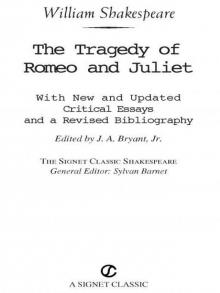 Romeo and Juliet
Romeo and Juliet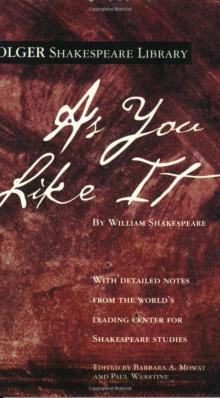 As You Like It (Folger Shakespeare Library)
As You Like It (Folger Shakespeare Library)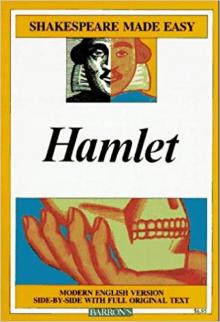 Hamlet
Hamlet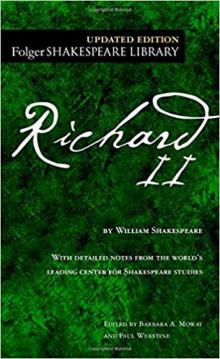 Richard II (Folger Shakespeare Library)
Richard II (Folger Shakespeare Library) Macbeth
Macbeth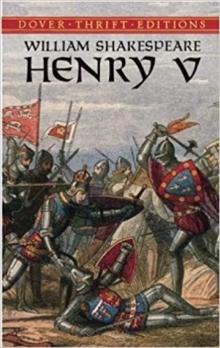 Henry V
Henry V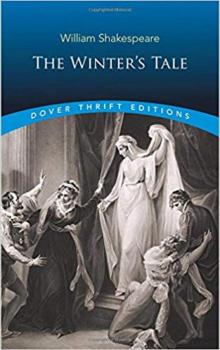 The Winter's Tale
The Winter's Tale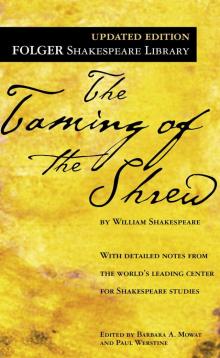 The Taming of the Shrew
The Taming of the Shrew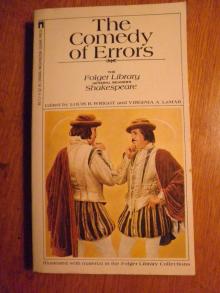 The Comedy of Errors
The Comedy of Errors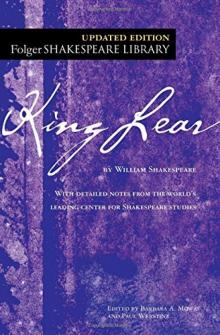 King Lear (Folger Shakespeare Library)
King Lear (Folger Shakespeare Library)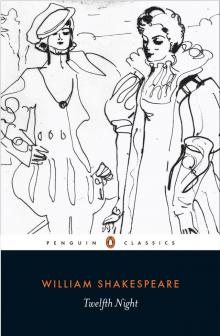 Twelfth Night
Twelfth Night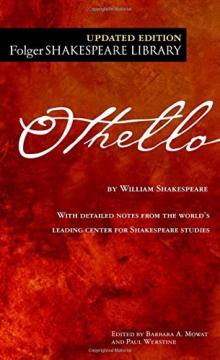 Othello
Othello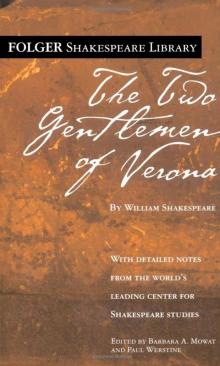 The Two Gentlemen of Verona
The Two Gentlemen of Verona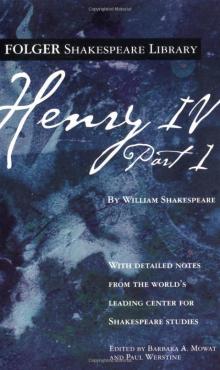 Henry IV, Part 1 (Folger Shakespeare Library)
Henry IV, Part 1 (Folger Shakespeare Library)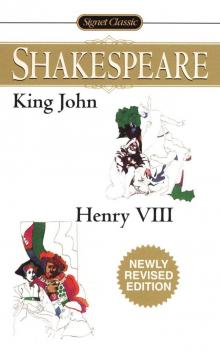 King John/Henry VIII (Signet Classics)
King John/Henry VIII (Signet Classics)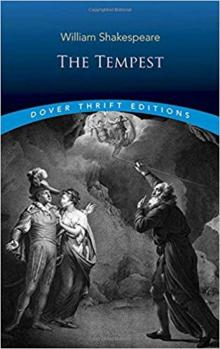 The Tempest
The Tempest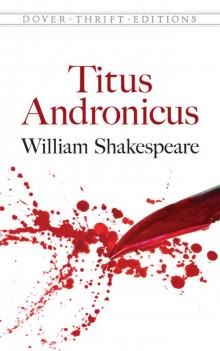 Titus Andronicus (Dover Publications)
Titus Andronicus (Dover Publications)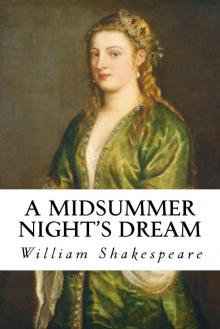 A Midsummer Night's Dream
A Midsummer Night's Dream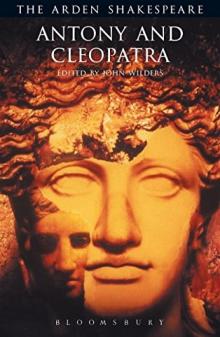 Antony and Cleopatra (Arden Shakespeare: Third Series)
Antony and Cleopatra (Arden Shakespeare: Third Series)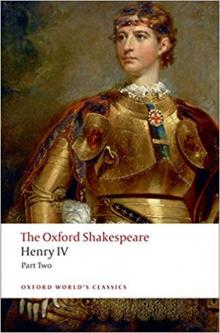 The Oxford Shakespeare: Henry IV, Part 2 (Oxford World's Classics)
The Oxford Shakespeare: Henry IV, Part 2 (Oxford World's Classics)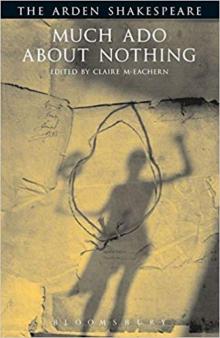 Much Ado About Nothing (Arden Shakespeare: Third Series)
Much Ado About Nothing (Arden Shakespeare: Third Series)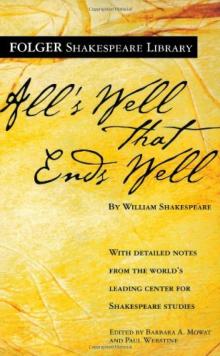 All's Well That Ends Well
All's Well That Ends Well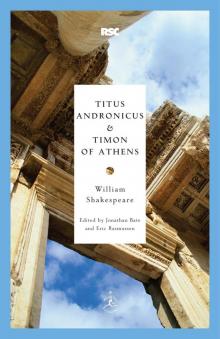 Titus Andronicus & Timon of Athens
Titus Andronicus & Timon of Athens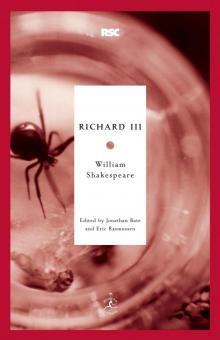 Richard III (Modern Library Classics)
Richard III (Modern Library Classics)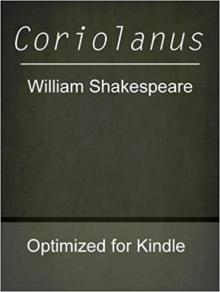 Coriolanus
Coriolanus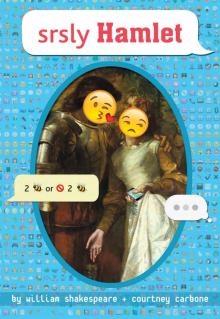 srsly Hamlet (OMG Shakespeare)
srsly Hamlet (OMG Shakespeare)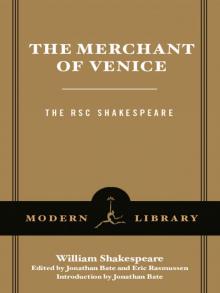 The Merchant of Venice
The Merchant of Venice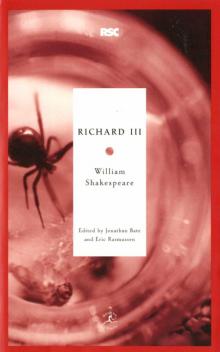 Richard III
Richard III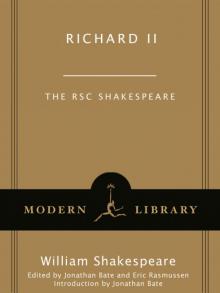 Richard II
Richard II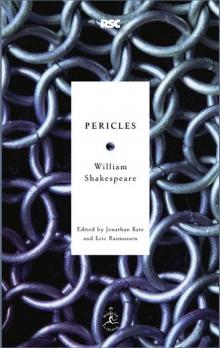 Pericles
Pericles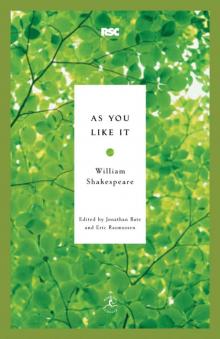 As You Like It
As You Like It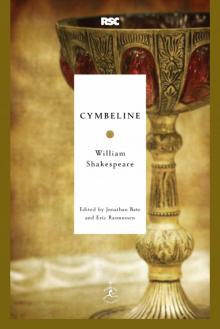 Cymbeline
Cymbeline Alls Wel that ends Well
Alls Wel that ends Well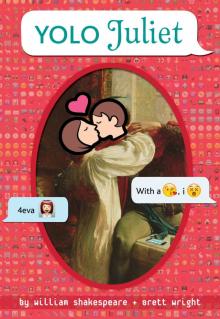 YOLO Juliet
YOLO Juliet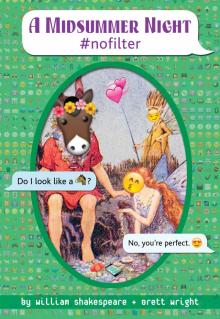 A Midsummer Night #nofilter
A Midsummer Night #nofilter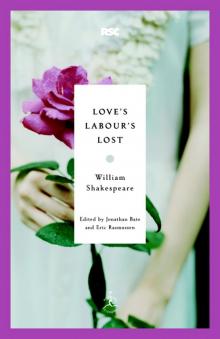 Love's Labour's Lost
Love's Labour's Lost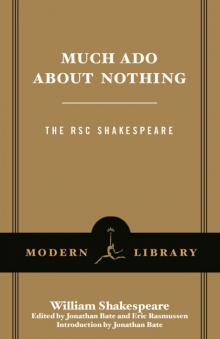 Much Ado About Nothing
Much Ado About Nothing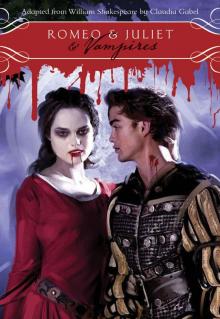 Romeo & Juliet & Vampires
Romeo & Juliet & Vampires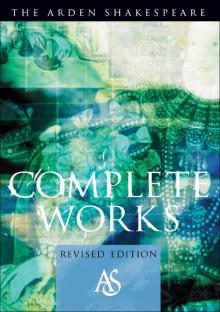 The Arden Shakespeare Complete Works
The Arden Shakespeare Complete Works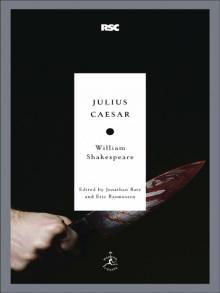 Julius Caesar
Julius Caesar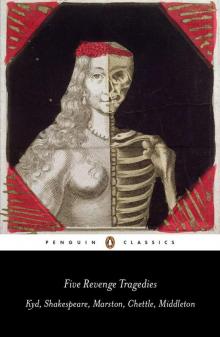 Five Revenge Tragedies: The Spanish Tragedy, Hamlet, Antonio's Revenge, The Tragedy of Hoffman, The Revenger's Tragedy (Penguin Classics)
Five Revenge Tragedies: The Spanish Tragedy, Hamlet, Antonio's Revenge, The Tragedy of Hoffman, The Revenger's Tragedy (Penguin Classics)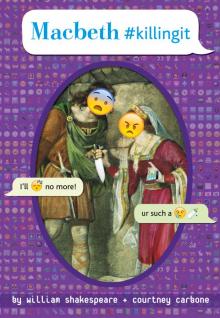 Macbeth #killingit
Macbeth #killingit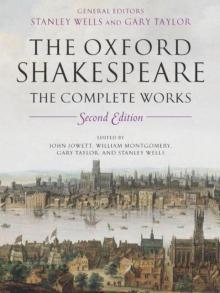 The Oxford Shakespeare: The Complete Works
The Oxford Shakespeare: The Complete Works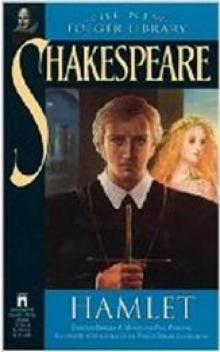 Hamlet, Prince of Denmark (Collins edition)
Hamlet, Prince of Denmark (Collins edition)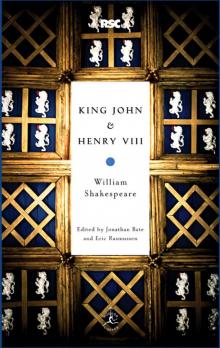 King John & Henry VIII
King John & Henry VIII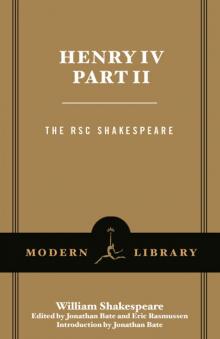 Henry IV, Part 2
Henry IV, Part 2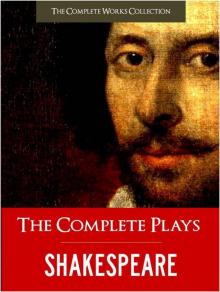 Complete Plays, The
Complete Plays, The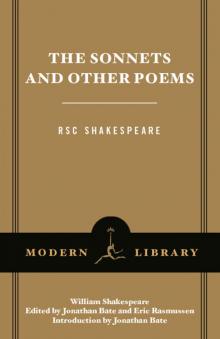 The Sonnets and Other Poems
The Sonnets and Other Poems Antony and Cleopatra
Antony and Cleopatra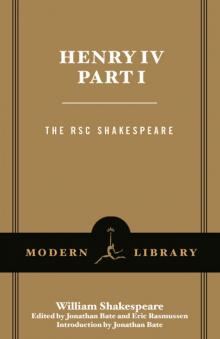 Henry IV, Part 1
Henry IV, Part 1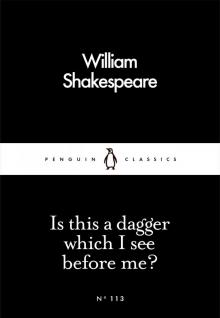 Is This a Dagger Which I See Before Me?
Is This a Dagger Which I See Before Me?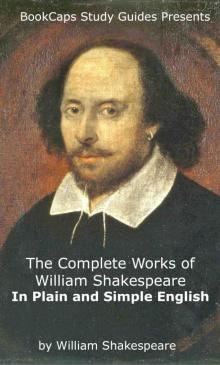 The Complete Works of William Shakespeare In Plain and Simple English (Translated)
The Complete Works of William Shakespeare In Plain and Simple English (Translated)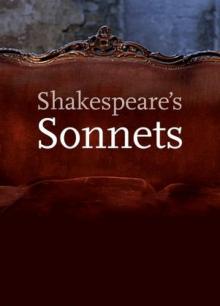 The Sonnets
The Sonnets